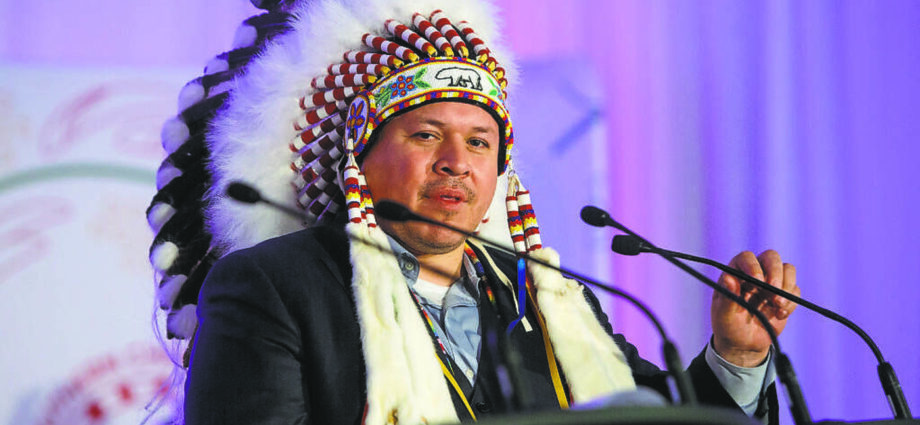
By Miranda Leybourne, Local Journalism Initiative Reporter, Brandon Sun
January 29, 2-23
It’s imperative that First Nations leaders be included in the upcoming health-care talks between Canada’s premiers and the prime minister, says the chief of Swan Lake First Nation.
The meeting, set for Feb. 7, is part of Ottawa’s plan to finalize a deal on health-care funding with the provinces and territories — and Jason Daniels believes First Nations, which are present across Canada, should be included in that discussion.
“We have a lot of [the same] concerns that the provinces do, but our concerns are more to our communities. There are [also] people that are living in urban areas as well that are getting marginalized,” he told the Sun.
The federal government’s handling of the COVID-19 pandemic in relation to First Nations shows there is plenty of room for improvement, he added.
First Nations people in Manitoba made up 40 to 60 per cent of all COVID-19 hospital admissions in the second and third waves of the pandemic, showing them to be more susceptible to infection for a number of reasons.
A March 2021 report from the province says risk factors included underlying health issues and overcrowded or inadequate housing, homelessness, and barriers to accessing health care and social services. Systemic racism also played a role in Indigenous peoples’ ability to access proper and timely services and support.
The pandemic has had significant social, economic and health impacts on Indigenous people, according to a 2020 Statistics Canada study. Indigenous people reported worsened overall health, and in particular mental health, at rates higher than the non-Indigenous population. Reduced access to and use of health-care services may have also had disproportionate impacts on the health of Indigenous people, the study said, potentially making pre-pandemic health disparities worse.
Health-care systems across Canada are in crisis and aren’t meeting the needs of First Nations people, said Southern Chiefs’ Organization Grand Chief Jerry Daniels in a news release Friday.
First Nations citizens know best what services and systems they need to stay healthy, and should be included in the upcoming health meeting, he said, especially as social inequities continue to exist.
A key finding in a study by the First Nations Health and Social Secretariat of Manitoba and the Manitoba Centre for Health Policy, which compared health data collected from 2015 to 2017 with the results of a study published in 2002, showed that the inequities between First Nations people and other Manitobans have worsened.
In the 2002 report, a First Nation person’s life expectancy was found to be about seven years lower than that of the general Manitoba population. In the newer study, that disparity has grown to about 11 years. In 2002, First Nations people’s rate of premature mortality — death before age 75 — was double that of other Manitobans. The rate is now three times that of non-First Nations Manitobans.
One major factor in the challenges First Nations people face within health-care systems is racism that is embedded in the systems themselves, Daniels said.
“A first step in combating this insidious racism is for us to be able to represent and advocate on behalf of our citizens. It is essential we work directly with the federal government to improve health for our First Nations.”
Subscribe to our newsletter.
The office of federal Health Minister Jean-Yves Duclos didn’t respond to a request for comment by press time.


